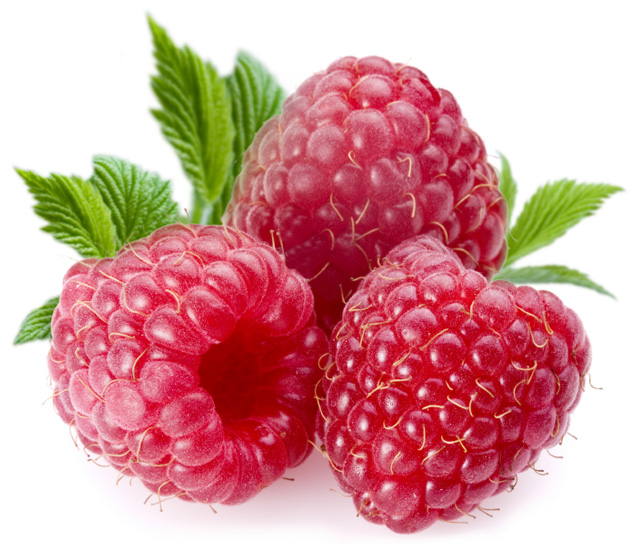First, some background. Raspberry ketones are small molecules found naturally in red raspberries which give them their smell and flavor (see above for the molecular structure). RKs have been used by the food industry for years to put the flavor or raspberries into various treats. They are also used in various perfumes, soaps and lotions, so the synthesis and purification of RKs are nothing new. In the past decade some scientists started taking note of the molecular similarities between RK and capsaicin - the molecule that is responsible for chilies' spiciness that have been shown to increase metabolic rate. Intrigued by this resemblance, researchers in Japan began to study the effects of feeding RK to mice that were eating a diet high in fat. They published a study in 2005 that showed feeding RK to these mice increased lipolysis, or breakdown of fat and decreased the absorption of dietary fat. Overall, the mice fed larger doses of RK were lighter than the mice fed the high fat diet alone (See figure below). A high dosage seemed to be key: the mice that were fed a diet containing 2% RK by weight had a significant decrease in body weight, but the group of mice eating a diet that was either 0.5% or 1% RK by weight did not have any difference in body weight relative to mice fed a high fat diet alone. It's probably safe to bet that the amount of RK needed to see this effect is not available by simply eating raspberries, which brings us to the next published paper I'll discuss: a patent!
 |
| ND: Normal Diet; HFD: High Fat Diet; RK: Raspberry Ketone |
Also in 2005, a different research group (associated with DSM, a leading producer of purified nutrients that are used in supplements and food products globally) published a US patent for a neutraceutical blend of the polyphenol found in green tea called EGCG and an RK precursor. This patented product demonstrated the ability to prevent weight gain and obesity associated conditions (like type II diabetes), again, in rodents. Showing similar results, their now patented supplement prevented weight gain in both mice and rats fed a high fat diet or a high fat, high sugar diet.
So, should you be taking RK to get ready for the beach this summer? Well, so far it hasn't been shown to have any adverse effects (other than decreasing the size of your summer beer fund), but because published research in humans is so limited (i.e. non-existent), no one really knows if it is safe. More and more nutrition research is coming out to show that supplementation of large doses of a single nutrient are actually harmful for humans, so you should take caution before popping pills of any kind. Plus keep in mind that RK supplementation has only been shown to prevent rapid weight gain in mice that were eating a very high fat diet, you can't expect that it's going to behave the same in humans that are trying to lose weight. The nutrition community goes through these magical weight loss nutrients so quickly without much to show for it. Remember when I said the idea of using raspberry ketones for weight loss stemmed from using capsaicin for weight loss? Well, do you know anyone that has lost a lot of weight by taking capsaicin pills? Right. I hate to be the negative Nancy here, but the best way to lose weight is really to make some major lifestyle changes that include eating foods that will keep you fuller longer (high fiber, high protein), and constantly reminding yourself to keep moving. Yes, it's going to be hard and you're probably rolling your eyes at the nutrition community for sounding like a broken record, but it is what it is. In the end, you'll be better off trying to increase your intake of raspberries (along with other fruits and vegetables) than spending that cash on pills.
 |
| Yum! |
Morimoto, C. et al. Anti-obese action of raspberry ketone. Life Sciences (2005)
Raederstorff, D. et al. Nutraceutical compositions comprising epigallocatechin gallate and raspberry ketone. US Patent Office (2005)

This comment has been removed by a blog administrator.
ReplyDelete